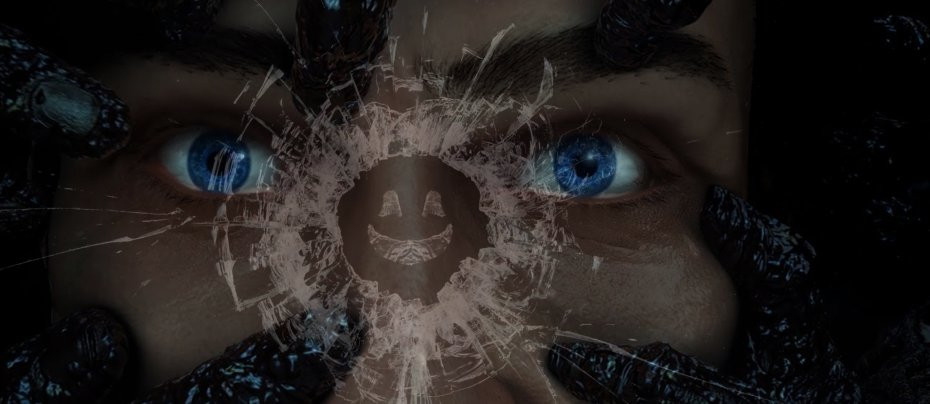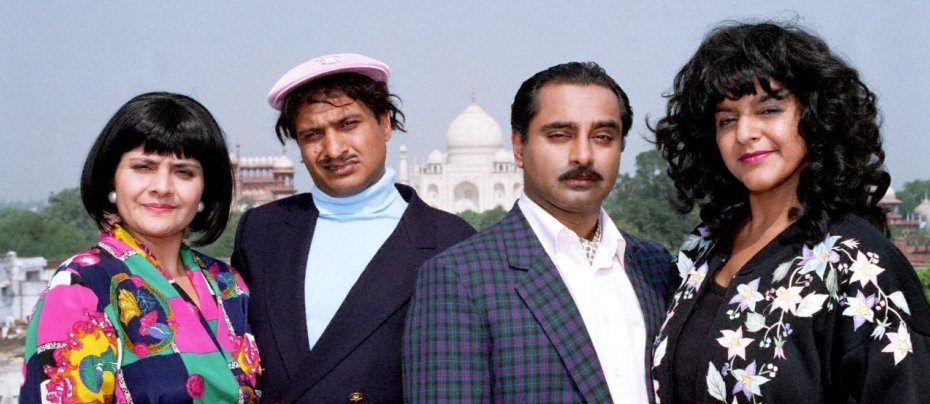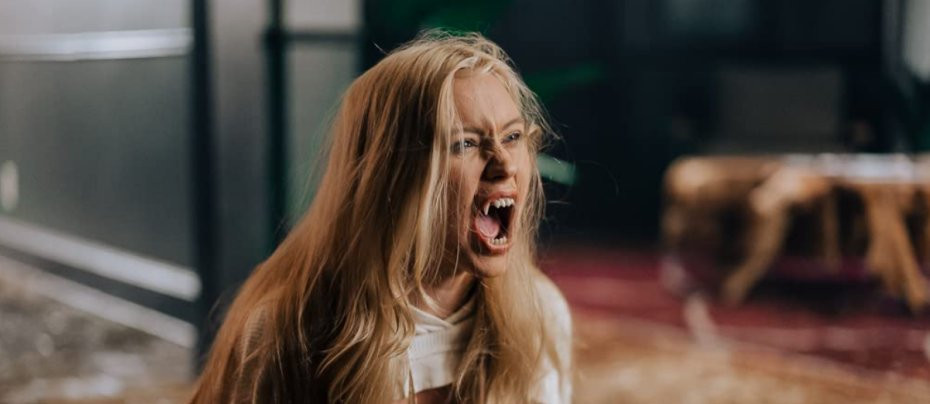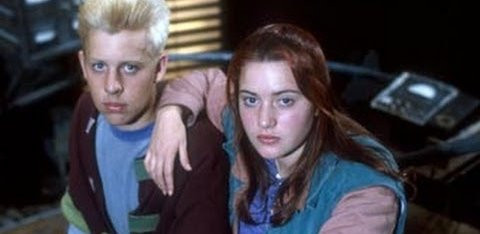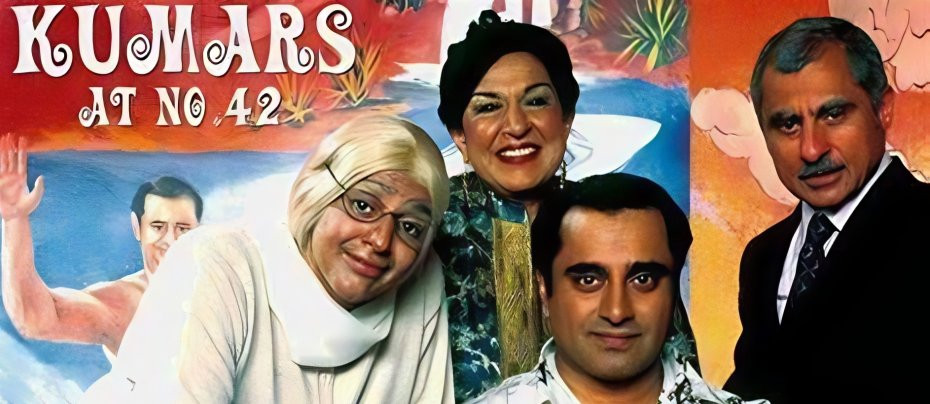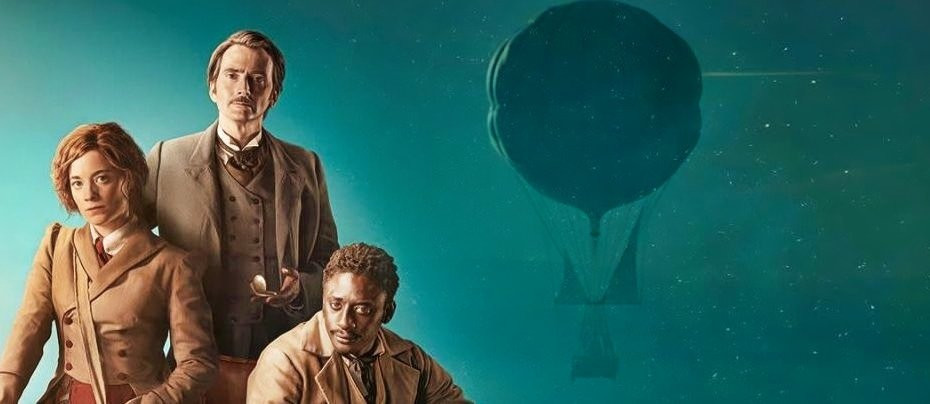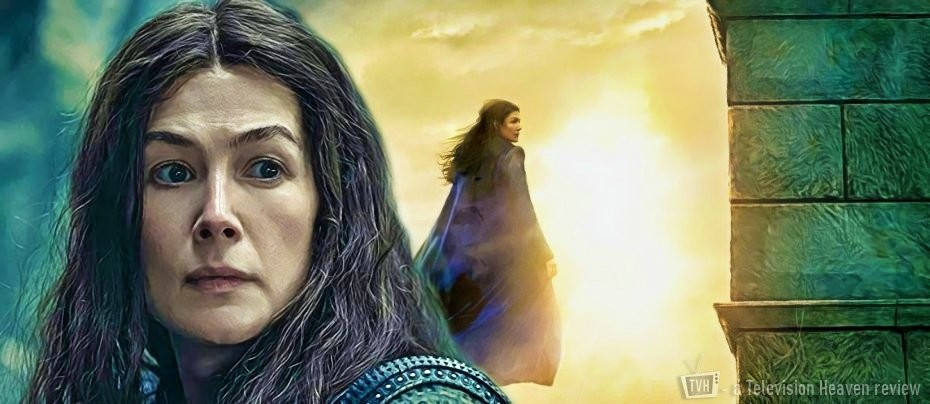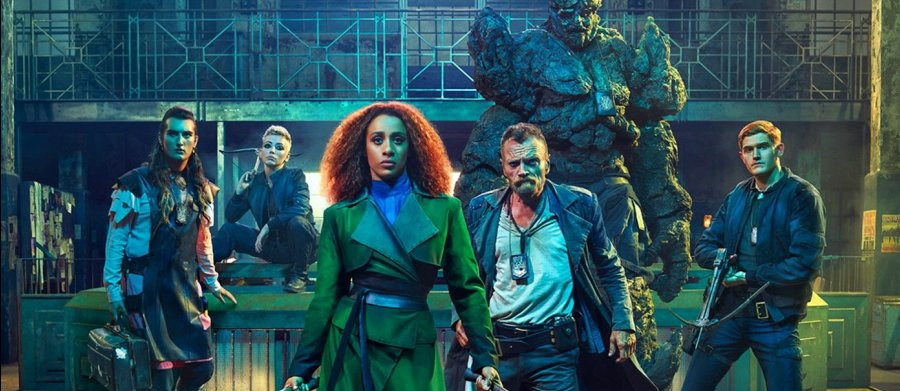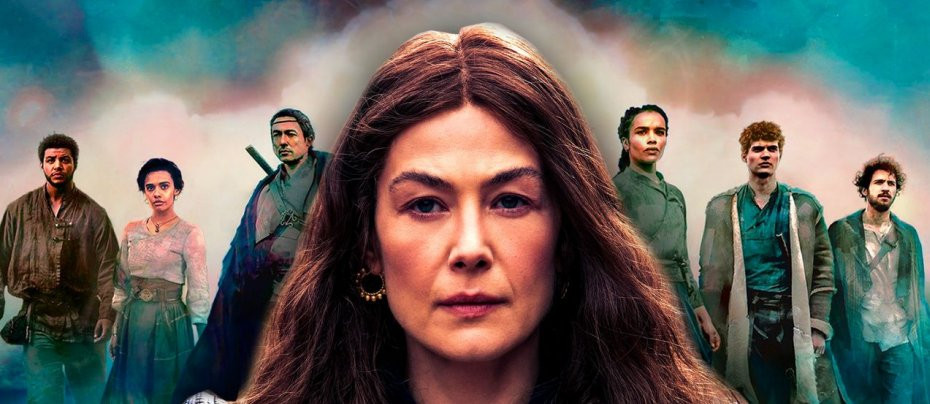
The Wheel of Time: Season Two
Review: John Winterson Richards
A few years ago, several fantasy shows were commissioned more or less around the same time with the deliberate intention of emulating the popular success of Game of Thrones. Comparing their first seasons, The Witcher raised expectations that were destined to be crushed when the production subsequently self-destructed, The Lord of the Rings: The Rings of Power was widely derided for its bad writing, the official and largely unwanted Thrones prequel House of the Dragon turned out to be a pleasant surprise compared with the later seasons of Thrones and The Rings of Power, and The Wheel of Time…also happened.
It was not that The Wheel of Time was a bad show. On the contrary, it was well produced and visually spectacular. Indeed, it is arguably the most aesthetically pleasing of all the four shows, even better looking than its famously more expensive Amazon stable mate The Rings of Power. It also had a typically brilliant leading performance from Rosamund Pike, even if some of the supporting performances were of, let us say, more variable quality. Yet it failed to catch the public imagination. There was very little talk about it online - except among more obsessive fans of Robert Jordan's thick novels with unrealistic expectations of television adaptation. Indeed, a few more hostile criticisms in the mainstream might actually have raised its profile a bit.
The problem was that there was nothing special in the story and most of the characters. It came across as standard fantasy fare: blah, blah... Chosen One... blah, blah... Call to Adventure... blah, blah... Dark One... blah, blah... The White Tower... blah, blah... The One Power... blah, blah... The Last Battle, etc, etc. The lore was actually very complicated - and the militant wing of the obsessives wanted it more complicated still to be true to the books - but for the casual viewer there really seemed to be no point thinking too much about it. Some of us wasted too many brain cells trying to remember this sort of stuff in our teens.
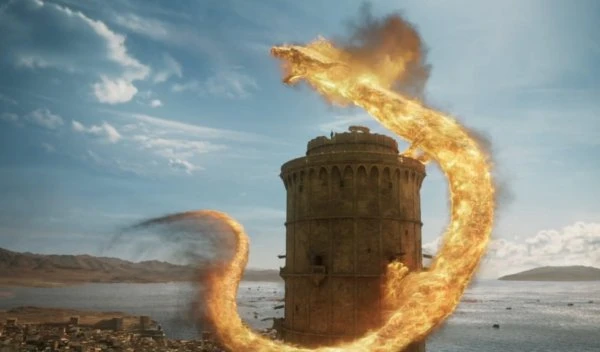
Season Two has built successfully on the strengths of its predecessor while at the same time addressing the weaknesses in plot and characterisation with a risky strategy that seems to have paid off. The show is even better looking this season. Once again it makes great use of locations, especially in a part of Morocco that is now familiar to film makers and in the Czech Republic - or Czechia as we are apparently supposed to say now. This is combined with imaginative use of CGI and a fearless embrace of colour, both in costumes and in computer grading, that other shows, especially fantasy and history drama, would do well to study.
It also gives its talented star more room to stretch herself as we get glimpses of the side of herself that Moiraine likes to keep hidden behind the facade of imperturbability. Pike balances both sides of her character, the powerful magus who always has to be seen to be in control and the secretly vulnerable woman, with such apparently effortless skill so that we are never entirely certain which will prevail in any situation. Moiraine is all the more realistic because she can be quite unpleasant in the way she treats others - she combines an aristocratic brusqueness with a fanatic's belief that ends justify means - and her decisions are not always logical. It is these imperfections that make her so fascinating, a Gandalf with issues.
This deeper exploration of our main protagonist's background and psyche is part of the general high risk strategy of putting more emphasis on character. Television is not supposed to do this in 2023 when it is generally assumed that viewers demand lots of noise and movement to keep their attention fixed on increasingly small screens.
Yet Season Two gets away with it, so that it comes as a shock when one realises how few action scenes and big set pieces there are before the final episode - which, it has to be said, more than makes up for their previous absence. The show has tricked the viewer into finding things like personal development and the interplay of characters involving, even moving (beware of a big emotional moment in the last episode). Clever show.
It does this by abandoning the main spine of the narrative, which was one of the great strengths of the first season, and separating the main characters. This is another brave decision, but it enables us to get to know them one by one. In particular, our five young juvenile leads were something of a generic group in Season One, so this time apart helps them grow as individuals.

The biggest winner in this process is Madeleine Madden as Egwene, the young apprentice healer who has been persuaded to become a Novice with the Aes Sedai, the feared sisterhood of magi. She gets some good Hogwarts type scenes in the early episodes, contrasted with some truly harrowing scenes later on. Madden impresses by how well she copes with everything that is thrown at her. As blacksmith Perrin, Marcus Rutherford shows how even a rather dull character becomes interesting when accompanied by three attractive warrior women and an even better looking wolf. His only problem is that his wolf, Hopper, steals every scene in which he appears. Hopper's presence also begs the question why even the slow witted Perrin did not wonder about his own lupine tendencies before this.

Donal Finn, already an experienced actor, is fine as Mat Cauthon, but one cannot help thinking how the subtler Barney Harris would have handled the same scenes. Harris' departure remains unexplained. We must respect his statement that it was for "very personal reasons," but it did not stop the internet doing what it always does in such situations, rushing in to fill the information vacuum with what turned out to be demonstrably inaccurate speculation. The moral of this story is that if you are in any sort of position in which the media and the internet take an interest in you, it is best to feed the beast before it feeds on you.
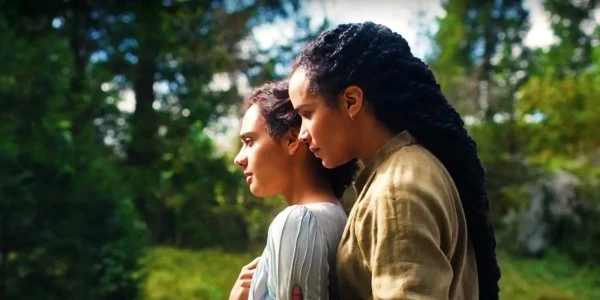
Zoe Robins as Nynaeve is given a strong character arc, including a very clever sequence of truly disturbing tests, but still comes across as petulant and even immature. This is doubly odd because she is supposed to be the oldest and wisest of the five - indeed, her job title is "Wisdom." The character does not seem to be progressing at all. The other disappointment is Rand, played by Josha Stradowski, who was, surely to absolutely no one's surprise, revealed at the end of the previous season as "The Dragon Reborn." Considering this means he is meant to be the extremely powerful Big Hero, he displays very little agency and has in effect taken over from Perrin as the most pointless character. Perhaps he needs to get himself a wolf - or, better still, an actual dragon.

We also get to spend more time with some of the intriguing recurring characters from Season One. The openly antagonistic "Red" Aes Sedai Liandrin (Kate Fleetwood, great) is given layers of complexity that force us at least to wonder which way she will bounce before the end. Alvaro Morte all but eats the scenery as a false Dragon, a long way from his nuanced, controlled performance in Money Heist. Sophie Okonedo as the head of the Aes Sedai gives us a good case study in the loneliness of power. Daniel Hanney continues to brood a lot as Moiraine's hunky Warder, an uneasy combination of bodyguard and sex toy. Kae Alexander as a likeable barmaid demonstrates why the ability to see the future would be a curse rather than a gift. Stuart Graham strikes the right note as a member of an order of religious fanatics who retains a sense of honour and decency, while Abdul Salis is a straightforward fanatic in the same order with more than a touch of sadism about him. Guy Roberts enjoys himself as a surly soldier and it is a pity we do not see more of his character's background. Hammed Aminashaun channels Treebeard the Ent from Lord of the Rings very effectively as an amiable ogre, or rather Ogier. Fares Fares makes a Satan analogue seem almost reasonable with a definite point of view.
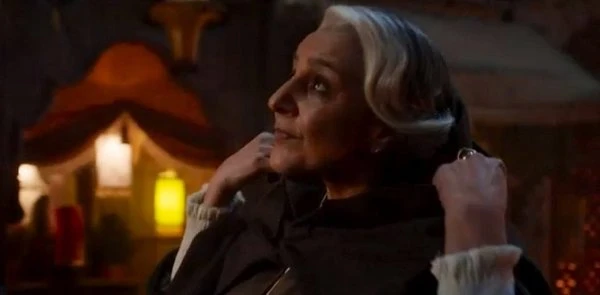
They are joined by some intriguing new characters. Best of all is Natasha O'Keeffe from Peaky Blinders as a convenient innkeeper with secrets and her own agenda, even if she is not always certain herself what it is. Ceara Coveney is believable and actually quite charming in the potentially difficult role of a young VIP who is sent to be educated as a Novice by the Aes Sedai. Lindsay Duncan knows better than anyone how to do female authority figures and is well cast as an aristocrat with a complicated family history. Meera Syal is maternal as an Aes Sedai living in very comfortable retirement who nevertheless rediscovers her taste for a little intrigue. Rima Ti Wiata is suitably Headmistressy as the Mistress of Novices at Aes Sedai Hogwarts. The fondly remembered Hayley Mills turns up in a very brief cameo.
As we find out more about these characters, the manoeuvring between the various players and factions becomes ever more compelling in much the same way that Game of Thrones achieved at its zenith. The ending of Season One left this reviewer in no particular hurry to see more, but that is definitely not the case after the conclusion of Season Two. Season Three is now eagerly anticipated - perhaps more so than the next seasons of any of its three competitors, certainly more than The Rings of Power and, sadly, The Witcher post-Cavill.
The good news is that the third season is already in production, commissioned immediately after the first was screened. However, although the initial viewing figures for Season One were good, and Season Two seems high in Amazon's "most watched," it still has not made the impact on the public consciousness that The Rings of Power did, even if much of the coverage the latter got was not for the reasons intended. The Wheel of Time looks like a very expensive show to make. There is a danger that it might indirectly fall victim to The Rings of Power: even Amazon cannot afford to run two costly but commercially disappointing big fantasy shows at the time and given how much they paid the Tolkien Estate for the rights they cannot back out of The Rings of Power. If a choice has to be made, it is almost certainly by far the superior of the two shows that will be cancelled. One can only hope that, before that happens, word will somehow get around that The Wheel of Time is getting a lot better.
Published on October 19th, 2023. Written by John Winterson Richards for Television Heaven.



